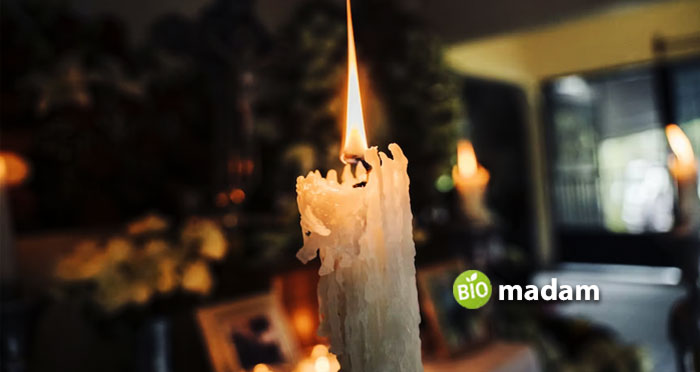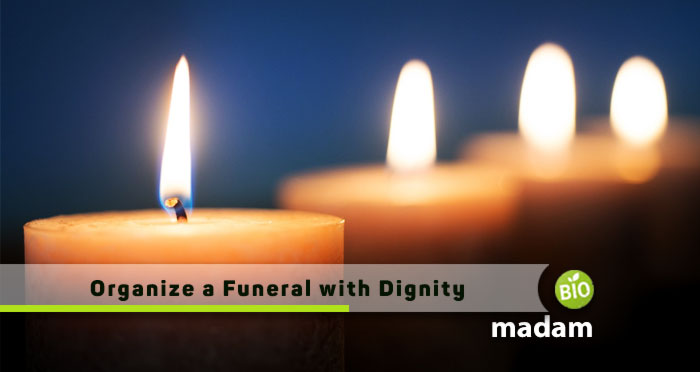Losing a loved one is an emotionally challenging experience, and organizing a funeral can be an overwhelming task. However, it is essential to remember that a funeral is a time to honor and celebrate the life of the deceased. By organizing a funeral with dignity, we can create a meaningful and respectful farewell that provides comfort to the grieving family and friends. So read on to delve into some essential elements to help you navigate this difficult process with grace and compassion.
Making Thoughtful Arrangements
Organizing a funeral begins with making thoughtful arrangements that consider the wishes of the deceased and the needs of the bereaved. Start by consulting with the restland funeral home or director who can guide you through the process with professionalism and empathy. Collaborate closely with them to make decisions regarding the type of service, burial or cremation, and the overall timeline. Take into account any cultural or religious traditions that should be honored during the funeral. Open and honest communication with the funeral director and family members will ensure that the arrangements align with everyone’s expectations and desires.

Incorporating Personal Touches
To organize a funeral with dignity, it is important to infuse it with personal touches that reflect the unique life of the deceased. Consider incorporating elements such as photographs, videos, and memorabilia that showcase their interests, achievements, and cherished memories. Encourage family and friends to share stories or anecdotes during the service, providing a memorial tribute to the person who has passed away. Additionally, select music, readings, or prayers that were meaningful to the deceased, as this will help create a deeply personal and dignified atmosphere.
Offering Support to the Bereaved
A crucial aspect of organizing a funeral with dignity is extending support to the bereaved. Grief can be an isolating experience, so it is important to provide emotional support to those who are mourning. Reach out to family members and close friends to offer assistance with practical matters, such as arranging transportation, preparing meals, or coordinating accommodations for out-of-town guests. Additionally, consider organizing support groups or counseling services that can provide comfort and guidance to those who are grieving. Demonstrating care and empathy in these small ways can make a significant difference during this difficult time.
Ensuring a Respectful Atmosphere
Creating a respectful atmosphere during the funeral is paramount in honoring the deceased and providing solace to the mourners. Pay attention to the overall ambiance by selecting a suitable venue that can accommodate the desired number of attendees. Ensure that the space is clean, well-maintained, and appropriately decorated with floral arrangements or other meaningful symbols. Establish a clear order of service, allowing for moments of reflection and remembrance. Encourage attendees to show respect by dressing appropriately and following any specific protocols or customs. By creating a dignified atmosphere, you can foster an environment where healing and support can thrive.
Providing Meaningful Rituals
Meaningful rituals can play a significant role in organizing a funeral with dignity. Consider incorporating rituals or ceremonies that hold special significance to the deceased or their family. This could include religious rites, cultural traditions, or personalized rituals that symbolize the person’s journey or values. Rituals provide a sense of continuity, comfort, and connection, allowing mourners to feel a deeper sense of closure and acceptance. Work with the family to understand their beliefs and preferences, and collaborate with religious or cultural leaders who can guide you in executing these rituals respectfully.
Communicating with Sensitivity
Effective communication is crucial when organizing a funeral with dignity. It is essential to communicate sensitively and compassionately with the bereaved, ensuring that their needs and wishes are heard and respected. Keep the lines of communication open throughout the entire process, providing updates, answering questions, and offering guidance. Listen attentively to the concerns and emotions expressed by the family, and be flexible and accommodating whenever possible. By fostering clear and empathetic communication, you can alleviate some of the stress and uncertainty that often accompanies funeral arrangements.
Embracing Inclusivity and Diversity
Funerals are an opportunity to bring people together, celebrating the life of the departed while embracing the diversity of their relationships and communities. Ensure that the funeral is inclusive and accessible to all attendees, regardless of their backgrounds or beliefs. Accommodate diverse needs, such as providing seating for individuals with disabilities or arranging translation services for non-English speakers. Respect different cultural practices or customs that attendees may observe, and be mindful of creating an atmosphere that is welcoming and inclusive to everyone present.
Practicing Sensible Financial Planning
Organizing a funeral with dignity does not mean overspending or going beyond your means. Sensible financial planning is crucial to ensure that the funeral arrangements are manageable and respectful to the deceased and their loved ones. Work closely with the funeral home to understand the costs involved and explore different options that align with your budget. Remember that meaningful gestures and personal touches can be more impactful than extravagant expenditures. By discussing and addressing financial matters openly and honestly, you can relieve some of the financial burdens and focus on creating a dignified farewell.
Preserving the Memory and Impact
Creating a lasting legacy is a crucial aspect of organizing a funeral with dignity. Beyond the immediate funeral arrangements, consider ways to preserve the memory and impact of the deceased for future generations. Encourage family and friends to share stories, photographs, or written tributes that can be compiled into a memorial book or digital archive. Explore the possibility of establishing a scholarship fund, charitable foundation, or other initiatives in honor of the person who has passed away. By creating a lasting legacy, you ensure that their memory lives on and that their contributions to the world continue to inspire and uplift others.

Organizing a funeral with dignity requires careful attention to detail, empathy, and compassion. By making thoughtful arrangements, incorporating personal touches, offering support to the bereaved, ensuring a respectful atmosphere, providing meaningful rituals, communicating with sensitivity, embracing inclusivity and diversity, and practicing sensible financial planning, we can create a funeral that honors the life of the deceased and provides solace to those left behind. Remember that the journey of grief is unique to each individual, and by approaching the funeral with dignity, we can offer a meaningful and healing experience for everyone involved.

Hi, they call me Jenna, and I am also known for achieving a gold medal during my Ph.D. in science life. I always had a dream to educate people through my utmost writing hobby. So, I chose this blogging path, and Biomadam gave me this opportunity to present for them. I now stand to entertain you. Continue reading my articles & discuss if you’ve any confusion through the comment section below.

